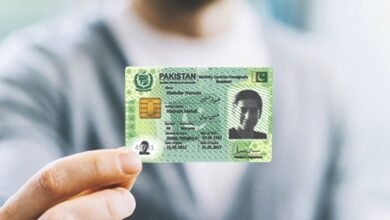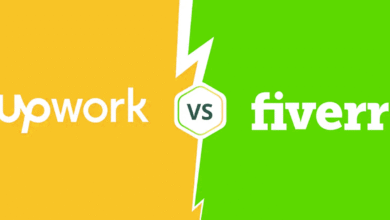Understanding Blockchain Technology: A Guide for Beginners in Pakistan
Blockchain technology in Pakistan explained simply Learn how blockchain works, its benefits, and real-world applications for beginners.

Blockchain technology is transforming the digital landscape across the globe, and Pakistan is steadily embracing its potential. For beginners, the concept may seem complex, but at its core, blockchain is a revolutionary system that enables secure, transparent, and tamper-proof record-keeping. Whether it’s financial transactions, supply chain tracking, or digital identity verification, blockchain offers solutions that can address many of Pakistan’s economic and administrative challenges. This guide breaks down the fundamentals of blockchain, its benefits, and its real-world applications in a way that’s easy to understand for students, professionals, and entrepreneurs alike.
In Pakistan, where issues like financial inclusion, corruption, and inefficient systems persist, blockchain technology presents a promising alternative. From enabling faster remittances for overseas Pakistanis to ensuring transparency in government records, blockchain can drive significant improvements. However, awareness and adoption are still in early stages. This is explores how blockchain works, why it matters, and how Pakistanis can leverage it for a more secure and efficient digital future. Whether you’re curious about cryptocurrencies or exploring Blockchain Technology for business, this guide will provide the clarity you need to get started.
Understanding Blockchain Technology
How Does Blockchain Work?
The functioning of Blockchain Technology relies on consensus mechanisms, cryptography, and distributed networks. When a transaction is initiated, it is broadcasted to a network of nodes (computers) for validation. These nodes use algorithms to verify the transaction’s authenticity. Once consensus is reached, the transaction is added to a block, which is then linked to the previous block, forming a chain. The decentralized nature of blockchain ensures that no single entity controls the data, making it highly secure and transparent.
Key Features of Blockchain
Decentralization
Unlike traditional systems where a central authority (like a bank or government) manages data, blockchain operates on a distributed network of computers (nodes). This decentralization eliminates the risk of a single entity manipulating the system, making it more democratic and resistant to censorship. In Pakistan, where trust in centralized institutions can be low, decentralized blockchain systems offer a more reliable alternative for financial and administrative processes.
Transparency
Every transaction on a Blockchain Technology is recorded on a public ledger that all participants can access. This transparency ensures that all actions are visible and verifiable, reducing fraud and corruption. For instance, in supply chain management, Pakistani businesses can use blockchain to track goods from farm to market, ensuring authenticity and fair trade practices.
Immutability
Once data is added to a Blockchain Technology, it cannot be altered or deleted. Each block contains a cryptographic hash of the previous block, creating a permanent and unchangeable chain. This feature is particularly valuable in Pakistan for land records, academic certificates, and legal documents, where forgery and tampering are common issues.
Enhanced Security
Blockchain Technology uses advanced cryptographic techniques to secure data, making it nearly impossible for hackers to alter information. Transactions must be validated by consensus among network participants, adding an extra layer of security. In a country like Pakistan, where cybercrime is rising, blockchain can safeguard digital identities, financial transactions, and sensitive government data.
Efficiency
By removing intermediaries, blockchain speeds up transactions while reducing costs. Smart contracts—self-executing agreements written in code automate processes like payments and approvals, eliminating delays. For Pakistan’s remittance-dependent economy, blockchain-based cross-border transactions could be faster and cheaper than traditional banking methods.
Traceability
Every transaction on a Blockchain Technology is time-stamped and linked to previous records, creating a complete audit trail. This feature is crucial for industries like pharmaceuticals and agriculture, where Pakistani businesses must comply with international quality standards. Blockchain ensures that every step of production and distribution is documented and verifiable.
Resilience
Since blockchain data is stored across multiple nodes, the system remains operational even if some nodes fail. This makes blockchain highly reliable for critical applications like disaster management, healthcare records, and financial services in Pakistan, where infrastructure challenges can disrupt centralized systems.
Blockchain Applications in Pakistan
Financial Services
Blockchain Technology can transform Pakistan’s banking sector by enabling faster, cheaper, and more secure cross-border transactions. Cryptocurrencies and decentralized finance (DeFi) platforms offer alternatives to traditional banking, especially for the unbanked population.
Supply Chain Management
Businesses can use Blockchain Technology to track goods from production to delivery, reducing fraud and ensuring authenticity. This is particularly useful for Pakistan’s agriculture and textile industries.
Healthcare
Patient records stored on a blockchain can improve data security and accessibility, reducing errors and enhancing treatment efficiency.
Government and Public Services
Blockchain can enhance transparency in land registries, voting systems, and identity verification, reducing corruption and improving governance.
Education
Academic credentials stored on a blockchain can prevent degree fraud, a significant issue in Pakistan’s job market.
Future of Blockchain in Pakistan
Banking Sector Transformation
Blockchain is poised to revolutionize Pakistan’s financial landscape by enabling faster cross-border payments and reducing remittance costs through decentralized solutions. Major banks are exploring blockchain for secure transactions while the State Bank evaluates digital currency options. This technology could bring millions of unbanked Pakistanis into the formal financial system through mobile-based blockchain wallets and microfinance solutions, particularly benefiting rural communities with limited banking access.
Transparent Government Systems
Government agencies are testing blockchain for land records, voting systems, and public fund tracking to combat corruption. The immutable nature of blockchain ledgers makes them ideal for maintaining tamper-proof property records and ensuring transparent distribution of welfare payments. These applications could significantly improve public trust in institutions while streamlining bureaucratic processes across federal and provincial departments.
Supply Chain Modernization
Pakistan’s key export industries – textiles, agriculture, and pharmaceuticals – are adopting blockchain for enhanced traceability. Farmers can now track cotton from field to fabric, while food exporters use blockchain to verify halal certifications and organic claims. Pharmaceutical companies are implementing serialized tracking to combat counterfeit drugs, giving international buyers greater confidence in Pakistani-made medicines.
Startup Ecosystem Growth
Karachi and Lahore have emerged as hubs for blockchain startups offering innovative solutions in digital identity, smart contracts, and tokenization. Local incubators are nurturing blockchain talent while international investors show growing interest in Pakistan’s Web3 potential. This boom is creating high-value tech jobs and positioning Pakistan as an emerging player in the global blockchain landscape.
Regulatory Framework Development
Pakistan is gradually establishing blockchain regulations to balance innovation with consumer protection. Recent moves include clarifying cryptocurrency taxation and exploring sandbox environments for fintech testing. The government is collaborating with industry experts to develop policies that encourage blockchain adoption while addressing concerns about money laundering and financial stability.
Read More: The Future of NFTs in Pakistan: Opportunities and Risks
Conclusion
Blockchain technology represents a transformative opportunity for Pakistan’s digital and economic future. As this guide has shown, its applications extend far beyond cryptocurrencies, offering solutions for financial inclusion, transparent governance, and efficient business processes. For Pakistani entrepreneurs, developers, and policymakers, embracing blockchain could mean leapfrogging traditional limitations and building more secure, trustworthy systems. While challenges like regulation and infrastructure remain, the potential benefits make blockchain an innovation worth understanding and adopting.
For beginners, the journey into blockchain technology starts with education and experimentation. Pakistan’s growing tech ecosystem provides the perfect environment to explore blockchain’s possibilities, from decentralized finance to smart contracts. As more local startups and institutions adopt this technology, Pakistan could emerge as a regional leader in blockchain innovation. The future is decentralized and with the right knowledge and tools, every Pakistani can be part of this revolutionary shift. The time to learn and engage with blockchain is now.
FAQs
What is blockchain in simple terms?
Blockchain is a secure, decentralized digital ledger that records transactions across multiple computers, ensuring transparency and preventing tampering.
How is blockchain used in Pakistan?
In Pakistan, blockchain is being explored for banking, supply chain tracking, healthcare, and government services to improve efficiency and reduce fraud.
Is blockchain only for cryptocurrencies?
No, blockchain has applications beyond cryptocurrencies, including supply chain management, voting systems, and secure record-keeping.
What are the risks of Blockchain Technology?
Challenges include regulatory uncertainty, high energy consumption (for some blockchains), and the need for technical expertise.
Can blockchain be hacked?
While blockchain is highly secure due to cryptography and decentralization, no system is entirely immune, but hacking it is extremely difficult.











